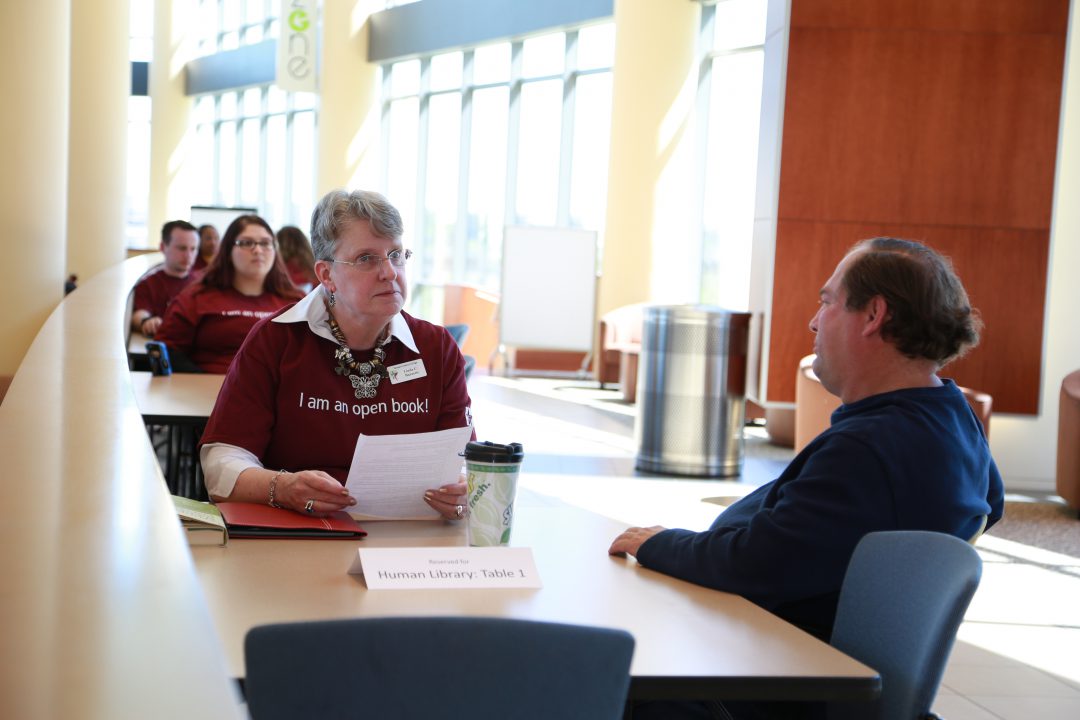Tarrant County College is bringing true stories of discrimination and stereotyping into the open with next month’s “Human Library” events. Participants will serve as “books” and detail their experiences; “readers” explore each book through conversation.
“The Human Library gives people an opportunity to tell their own stories and creates greater understanding in the community,” said April Martinez, assistant director of library services at TCC Northeast. “You might not meet these people in the course of your everyday life, and they could give you a whole new perspective.”
The Human Library will be held at TCC Northeast Wednesday, April 4, from 9 a.m. to 5 p.m. in the J. Ardis Bell Library (828 W. Harwood Rd., Hurst). Planned participants include a former welfare recipient, a dyslexic African-American woman, a police officer, a woman of Comanche heritage and an atheist married to a Christian.
“As an atheist growing up in the South, it can be difficult to discuss my lack of religious beliefs without people making assumptions about my character, values and lifestyle,” said student Courtney Preston Carter. “I hope the Human Library will inspire readers to consider the biases they have, even if they don’t realize they have them.”
TCC Northwest will hold its Human Library Thursday, April 19, from 10 a.m. to 2 p.m. in the Walsh Library (4801 Marine Creek Pkwy., Fort Worth). Recruitment for “books” continues; expected participants include an individual of Muslim faith, a student with autism, an older member of the LGBTQ community, a juvenile offender and others.
“The Human Library is a very popular event,” said Alex Potemkin, director of library services at TCC Northwest. “It is an amazing opportunity for both books and readers to be exposed to new viewpoints, and to walk away with a better understanding of the variety of people who make up the fabric of society. Ideally, through insightful conversations, participants will foster a greater understanding of how our unique positions and diverse experiences help shape our worldviews—and ultimately expand those worldviews.”

